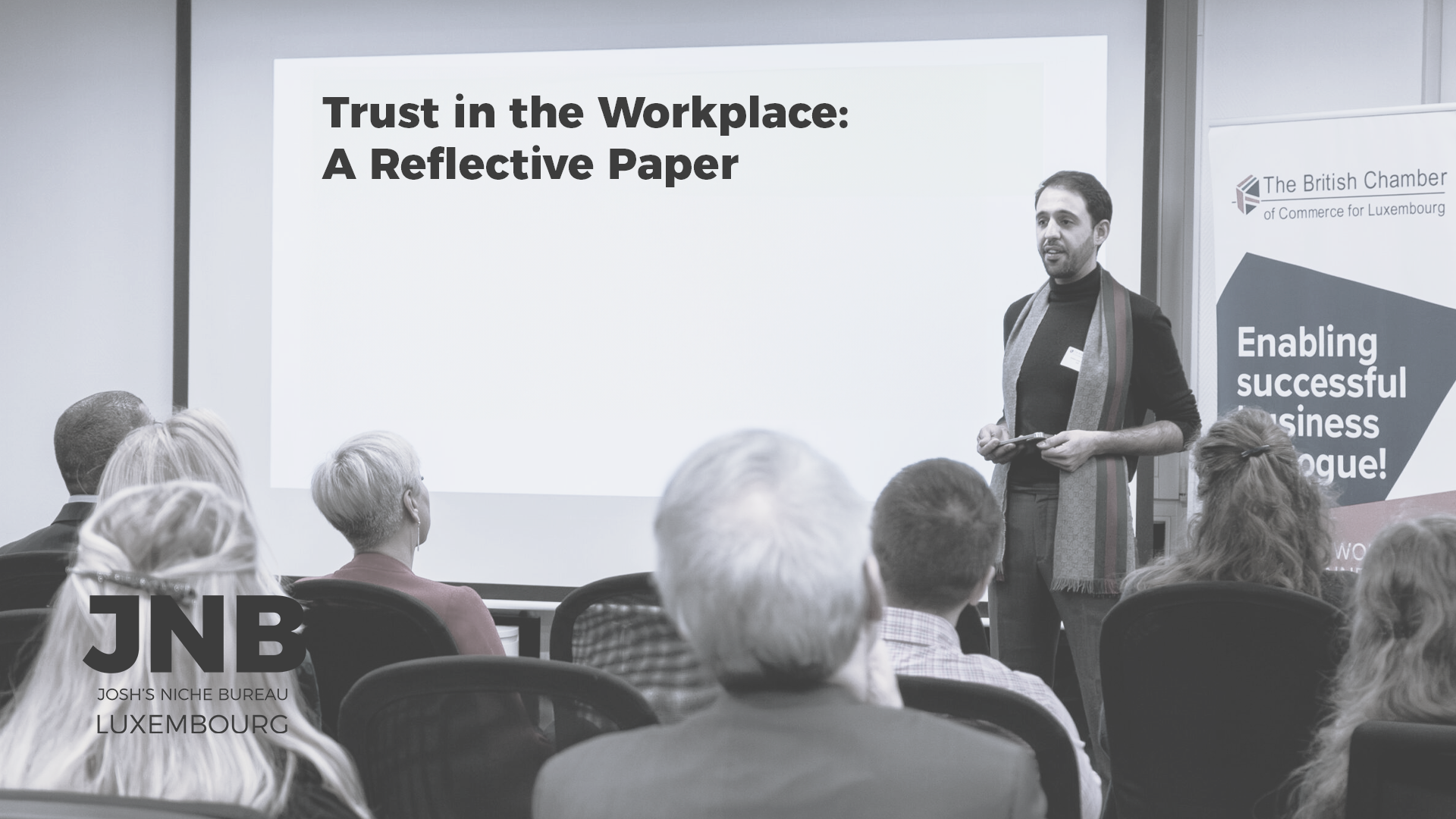Trust: The Cornerstone of Collaboration in a Changing Workplace
As we prepared for the workshop Building Trust in the Workplace, we found ourselves reflecting on the depth of the topic and the journey it takes to truly understand it. Trust, after all, isn’t just a buzzword or a theoretical concept—it’s the foundation of how we connect, collaborate, and thrive in both our personal and professional lives.
The process of preparing for the workshop was a reminder of how important it is to share knowledge. Insights gained in thoughtful discussions should never be confined to the walls of a room; they deserve to ripple outward, sparking reflection and inspiring change. So, whether you’re a leader, a manager, or a team member, I hope this reflection resonates with you. Trust is, at its essence, the invisible glue that binds us, enabling innovation, resilience, and authentic connection.
Defining Trust and Its Role in the Workplace
What do we mean by trust? John and Julie Gottman define it as a state of relationship where both parties are willing to adjust their behaviour for one another’s benefit. Trust is the confidence we place in someone’s integrity, reliability, and competence—especially in moments of vulnerability or uncertainty. In the workplace, trust is more than a virtue; it’s the driver of success. It’s what allows teams to take risks, make mistakes, and create together, knowing they’ll be supported rather than judged.
The Foundations of Trust: Shaped by Experience
Trust doesn’t form in isolation. It’s shaped by the experiences we carry, from our earliest relationships to our professional interactions. For some, trust is instinctive—a gift of secure foundations. For others, it’s harder won, tempered by moments of betrayal or inconsistency. These individual histories influence how we perceive colleagues, managers, and workplace dynamics.
When trust is strong, it fuels collaboration and creativity. When broken, it can paralyse teams and organisations, leaving a wake of disengagement and conflict.
Trust in a Post-Pandemic World
The pandemic changed the way we work and interact. Physical distance disrupted relationships, and for many, trust in the workplace wavered. Yet it also highlighted the power of intentional leadership. Clear communication, genuine care, and consistent actions can rebuild trust, even in difficult circumstances.
Here in Luxembourg, we’re fortunate to have a higher baseline of trust in our workplaces, bolstered by strong labour protections. For expats, this can feel like a breath of fresh air compared to less secure environments. But these high expectations can also magnify the pain when trust is broken. Promises unfulfilled or a lack of psychological safety can leave employees feeling blindsided, amplifying the gap between expectation and reality.
Trust is Personal and Complex
One concept discussed during the workshop is assumed trust—the unspoken belief that leaders will act in employees’ best interests. When these expectations are met, trust thrives. When neglected, it fractures, potentially leading to disengagement and dysfunction.
But trust isn’t uniform. It’s shaped by culture, personality, and experience, making it deeply personal. Rebuilding trust requires patience, empathy, and a willingness to adapt to individual needs.
Moving Forward: Trust in Action
Ultimately, trust is about action. It’s about recognising the power of relationships and committing to creating environments where people feel valued, safe, and empowered to contribute. Whether through confronting toxic dynamics or fostering open communication, trust is something we can all work to strengthen.
Preparing for the workshop reminded me of trust’s transformative potential, not only for organisations but for individuals. It’s a catalyst for growth, resilience, and creativity—a force that allows us to thrive in a world of uncertainty. My hope is that this reflection sparks a conversation within you, encouraging you to think about how you can foster trust in your teams, your workplace, and yourself.

Leave a Reply